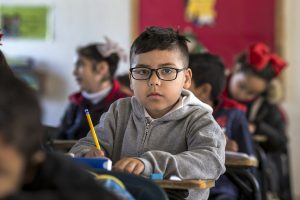It’s hard to imagine being an expat and having to relocate your whole family to a new country and be exposed to a totally different culture. You must have a lot of things going through your mind.
In your new city, you search for the safest and most accessible neighborhood. When you’ve solved that one, you look for enjoyable and exciting activities that your kids can participate in to make them feel at home. Then, you think of the most important thing, their education. Where do you send them now? What qualities of school do you look for? Is there a school in the Philippines that fits your preferred model of education for your kids?
To answer your questions, see our country’s list of educational system that you can consider for your child. Sit down with your family, and bring to the table your wishlist to find and seal the right school in the Philippines for your kid.
International School
If you’ve been constantly on the move from one country to the other, it’s very likely that you opt for an international school. It’s easily the most convenient and reasonable choice for you and your kid.
You need little adjustment as it is more inclusive in terms of being open to different nationalities and religions. The openness is something that could be very vital to your child, because he/she’s the one who’ll be there every day to deal with the culturally diverse environment. It’s important that your child feels a sense of belongingness and acceptance in his/her new school.
Another consideration is the curriculum. International schools follow a globally-recognized curriculum that won’t alienate your child. Your child has probably encountered this in the last city you’ve been in or if this is your first time abroad, their mode of teaching could be the closest you can get to home.
With the given advantages also comes the disadvantages. While international schools nurture an air of acceptance and tolerance, it hinders exposure to the local culture. There isn’t room to interact with Filipino students and learn from them.
List of International Schools: Brent International School Manila, International School Manila, Southville International School and Colleges, British School Manila, Chinese International School Manila, Reedley International School, Singapore School Manila, Fountain International School, Domuschola International School – Pasig City, Australian International School Manila – Parañaque City, The Manila Japanese School
Local Private School
Some expats prefer that their child be exposed to the local scene, so they enroll them to local private schools. This helps them learn about the Philippine way of life and culture.
While practical and relatively cheaper than international schools, local private schools follow the curriculum that the country’s Department of Education mandated. It’s not entirely difficult but it may take a new foreign student to understand it and eventually get accustomed to it. However challenging, trust that the quality of education you’ll get is on par with the global standards.
There are available co-ed or gender-exclusive private schools around Metro Manila you can choose from.
List of Private Schools: Colegio San Agustin Makati, Ateneo Grade School Loyola Heights, De La Salle Greenhills, De La Salle Santiago Zobel, Assumption College, St. Theresa’s College
Progressive School
Growing popularity in the country is the progressive curriculum. Contrary to the style of traditional education, progressive curriculum focuses on the child’s experience versus her rote learning. It embraces the philosophy that the best kind of education is not measured in tests and grades, but in developing and focusing on the child’s skills and interests.
Such style of learning could be a good choice especially if your child is still young. The experience could be fun for your child as he/she can focus on her main interests at present time.
List of Progressive Schools: Keys School Manila, The Raya School Manila, Manila Waldorf School
Home School
Last on our list is a flexible and accessible kind of learning, home schooling. If you’re family is keen on this kind of educational approach, you may choose to do this. With this style, there’s consistency and familiarity especially if your work involves a lot of travelling and you need to take your family with you.
This, however, controls your child’s acquaintance with other children. In addition, you also need to consider the time you have for study schedule and the utmost patience and dedication in creating lesson plans and activities for your child.
We hope our list has given you ideas on what kind of school you want to enroll your child while you’re here in the Philippines. At the end of the day, whether you decide on an international, private, progressive or home school, your child, above all, should have the best experience out of this.




